The 10th Congress of the World Turkish Business Council, held under the auspices of the Presidency and bringing together important names of the Turkish diaspora, continues at the Haliç Congress Center.
Speaking at the gala dinner of the event organized by the Foreign Economic Relations Board (DEİK), Treasury and Finance Minister Şimşek said that he came from Germany and attended the congress and that they explained Turkey's new program at an event where the CEOs and CFOs of Germany's 50 largest companies were present.
Pointing out that the world is in a period of low growth, Şimşek said, "Global growth is expected to be around 3 percent on average for the next 5 years. While this partly reflects monetary tightening to combat high inflation, it actually reflects some more structural headwinds. Because the world is in huge debt and This limits growth. There is a serious aging in the population. There is a relatively low trend in investments. Productivity is low. When we consider all these together, it already limits growth."
"I believe that Turkey will come to the fore in terms of supply from close and friendly countries."
However, more importantly, Stating that there is a very serious geopolitical collapse in the world, Şimşek said, "In other words, the world seems to continue on a protectionist path due to a great conflict in recent years. Of course, this also contains important opportunities for our country. When we look at it from the perspective of our country, especially after the pandemic." "The trend of supplying from nearby places or supplying from friendly countries and markets, which has become a trend, is a very important trend. Therefore, I think that Turkey has a great advantage in that respect. Because we are not only geographically close to a very important region such as the European Union. 'Customs Union' It is a country that has the feature of supplying from markets close to the category of supplying from friendly countries due to its long-standing candidacy relationship.Similarly, it is actually supplying from close and friendly countries to Central Asia, the Balkans, the Middle East and even Africa. I believe that Turkey will come to the fore. This trend is in our favor."
"We are determined to fight inflation. We have succeeded before, we will succeed again"
Stating that at this point, macrofinancial stability must be established first, Şimşek said:
"Our program has three basic components. The first component is disinflation. That is, restoring price stability. Unfortunately, there is a very high inflationary period in the world after the pandemic, but of course inflation is at much higher levels in Turkey. It is not easy to do business in places where inflation is high It is becoming difficult to talk about predictability and sustainable growth. We are determined to fight inflation in order to put Turkey on a high, sustainable and balanced growth path again. We have succeeded before, we will succeed again.
When we think of a disinflation program, we naturally think of monetary tightening. It is the same in the world... Actually, not only in Turkey. Look, let me give you a number. In the last 21 months, 12 developed countries increased interest rates a total of 107 times, and 22 developing countries increased interest rates 162 times, and currently global inflation was in a downward trend, but it is still well above long-term averages. Therefore, we are going through a monetary tightening in our country. At the same time, we are going for selective credit tightening. The purpose of this is to channel our scarce resources into productive areas."
"One of our biggest priorities in this period is exports"
Emphasizing that one of the biggest priorities in this period is exports, Minister Şimşek said:
"When you say export, of course, there is production, employment and investment. Therefore, as our President always emphasizes, we actually have the perspective of investment, employment, production and export. We are determined to channel the scarce resources in our country to this field. That is why we have selective credit arrangements. In addition, of course, there is also quantitative tightening, and when we look at it as a whole, we expect inflation to enter a serious downward trend in the coming period, especially after the second half of 2024. Because monetary policy works with a delay. Credit policy, "Similarly, fiscal policy may seem to be more expansionary for a while due to the impact of the earthquake, but when we leave aside the effects of the earthquake, we have actually taken very serious measures to reach the Maastricht criteria again. Thanks to these measures, the deterioration in fiscal policy will be temporary."
"The fight against inflation is not a fight that can only be carried out through monetary policy."
Mehmet Şimşek emphasized that the second important component of the economic program is fiscal policy,and said that fiscal policy was Turkey's strongest side in the past, and that once the earthquake effects are put aside, we will return to that point during this program period.
Stating that the budget deficit will be significantly below 3 percent in 2026, excluding the earthquake effect, Minister Şimşek continued as follows:
"Therefore, we will both meet the Maastricht criteria and we will actually continue on our way with a deficit close to the averages we have achieved in the last 20 years. Fiscal policy and monetary policy will go in harmony. Because the fight against inflation is not a fight that can be carried out only through monetary policy in countries like ours. Because monetary policy The transmission mechanism does not work as well in countries like ours as it does in developed countries. Because there is currency substitution. There are many other factors. We are aware of these. Therefore, as fiscal policy, we want to come to a point that supports monetary policy while healing the earthquake wounds. "We have already taken the necessary measures for this. We will continue to do so."
"We will bring our country to a point where it grows on a path that quickly closes the gap with developed countries."
Minister of Treasury and Finance Şimşek pointed out that a very important component of the implemented economic program is structural transformation, that is, structural reforms, and made the following statements:
"We will continue to work for the structural transformation of Turkey under 7 main headings in many areas, from taxes to the investment environment. Our aim from structural transformation is important regulations and practices that will increase productivity, and investment in the right areas. Because improving the investment and competitive environment, increasing innovation and productivity in Turkey is the key. Therefore, we will again bring our country to the point where it grows on a path that quickly closes the gap with the truly developed countries. This year, of course, according to our estimates, Turkey will exceed 1 trillion dollars for the first time this year. If I had to round it up (this year), it will be about 1.1 We will become a trillion-dollar economy. This is important. At the end of this program period, that is, in 2026, Turkey will enter the category of high-income developed countries as defined by the World Bank in 2026. This is a very important threshold. I believe we will achieve this. The prerequisite for this is price stability."
"With price stability, Türkiye will enter a high but sustainable growth path again"
Minister Şimşek noted that they need to rebalance growth and said that they can achieve price stability with the right policies and growth.
Emphasizing that in order to rebalance growth, they should transfer their scarce resources to production instead of excessive consumption, Şimşek continued his words as follows:
"This is what we demand from our banks and all the regulations we have made so far are in this direction, but sacrifice is required to achieve price stability from the point we are at today. Patience is required. Yes, it is not easy, but we will achieve this and with price stability, Turkey will enter a high but sustainable growth path again. "Fiscal policy will serve as an important anchor here. At the point of external resources, I believe that the markets will evaluate this program, but after their evaluations, I believe that they will give a vote of confidence by transferring resources here."
Şimşek said that Turkey's risk premium has decreased from 700 basis points to below 400 basis points in the last 3 months, that these levels are still not sufficient for them, that they hope that Turkey's CDS will decrease below 200 basis points in the medium term and that they are working towards this.
"Very serious grade increases will come over time"
Mehmet Şimşek noted that international rating agencies started to make positive evaluations regarding Turkey's rating, and explained that Fitch raised Turkey's outlook by one degree and turned it from negative to stable, and another organization changed the negative outlook of banks to stable, and these were the first steps.
Stating that as you implement this program and as the program yields results, serious grade increases will come over time, Şimşek made the following evaluations:
"This will reduce the country's risk premium. This will enable our companies to have financing opportunities both domestically and abroad under more favorable conditions. Therefore, if we are patient and implement this program with determination, which there is not the slightest hesitation about, we will ensure price stability and put our country on a high growth path again. "We will also reduce some of our other structural problems, such as our current account deficit, to a more sustainable point. We will be able to finance this deficit under very favorable conditions. That is why we believe in the talent and dynamism of the Turkish business world, both at home and abroad, because Turkey's biggest advantages are you. You are "You are writing truly incredible success stories in all corners of the world."
"Export will be our top priority in the coming period"
Minister of Treasury and Finance Şimşek stated that there are incredible success stories of Turkish business people in all corners of the world and said, "I think Turkey's greatest resource and greatest power are Turkish entrepreneurs. You are our most important capital. Therefore, you are very valuable to us. Your congress is also "It is very valuable in that sense. I hope we will succeed all together." he said.
Emphasizing that their biggest priority will be exports in the coming period, Şimşek said:
"I know that the world economy will grow slowly. Under these conditions, the demand for our goods and services may not be as strong as in the past, but we will support you very strongly in every field. You will also strive, hopefully you will support our country with new markets and larger market shares in existing markets. I hope you will have the biggest role in this success."
Answering a participant's question regarding projections on trade in local currencies, Şimşek stated that this is a process arising from several needs and that the sanctions imposed by some developed countries force some countries to trade and shop in local currencies.
Stating that on the other hand, such efforts are made through swaps, Şimşek said:
"I do not predict that there will be a major change in the reserve position of several global currencies in the near future. But of course, there is a high probability that efforts in this direction will gain some momentum. Here is the expansion of BRICS and as far as I know, there will be some efforts in this direction there. We are Turkey We are trying to revive this process through swap agreements and bilateral agreements with some countries. But as I said, if you leave out a few currencies in global trade, namely the dollar and euro, I can say that the share of trade in local currencies is still very low. "But, as I said, some practices can bring some countries to a much more challenging point. We will monitor those trends closely. As I said, as a country, we have some dialogues and some efforts in this direction with some countries."
"Turkey has very important advantages"
Minister Şimşek answered a question about what kind of strategy Turkey will follow in terms of trade in the environment of geopolitical tensions in the region as follows:
"We will follow a smart strategy. Of course, a balance policy is important here. We do a significant part of our trade with the European Union. A significant part of the financing comes from the European Union. If you look from a macro perspective, a significant part of the service revenues, I am talking about tourism, are from the European Union. A significant part of the direct investments are from the European Union. Therefore, with the European Union, we want to further strengthen the process by updating the Customs Union and expanding its scope. Therefore, it is important, but in terms of market diversification, significant progress has already been made in the last 20 years. Especially "Whether it's the Middle East or Africa, the place where we are weakest is probably Asia."
Pointing out that geopolitical tensions can bring about protectionism, Şimşek said:
"This would be a negative trend in terms of global growth. But if your story is strong as a country, that is, if you are in an important structural transformation and you continue on your way with healthy policies, it is always possible to turn those troubles into a serious advantage, an opportunity, even in those troubled environments. I hope, of course, that these tensions will be tensions do not lead to much bigger fractures. A famous philosopher said the following in the 1930s: 'The old world is dying. The new world is in the throes of birth. Now is the time for monsters.' Now, after 1945, after the Second World War, rule-based multilateral "A new world order has been established. Now there are cracks here. But a new order has not been formed yet. It is not an easy period for that. So when you look at it from this perspective, Turkey has very important advantages."
"We will create a new story with the disinflation program"
Minister of Treasury and Finance Şimşek continued his words as follows, pointing out that two important trends have come to the fore after the Covid-19 epidemic and with these global and geopolitical tensions:
"(First) Procurement from nearby locations. Because diversification of the supply chain has become very valuable. And procurement from friendly, allied countries... I think Turkey has very important advantages in both contexts. Therefore, there are very important opportunities for Turkey. Look "I think Turkey's infrastructure has almost reached the level of developed countries. Look at the World Bank's logistics index, we are ranked 38th and ahead of 91 developing countries in the world."
Şimşek noted that Turkey has very valuable characteristics that it can turn into opportunities, regardless of the developments in the world.
Referring to Turkey's per capita national income relative to its population, Şimşek said:
"I always ask this. I asked investors today too. It's a simple question. How many countries in the world can you name that have a population of over 80 million and a national income per capita of over 10 thousand dollars? Of course, there is the USA, Japan, Germany, Mexico, Russia and China. Turkey is the 7th country. There are not many countries in this sense. If you increase the population to 85 million, Germany is out of the equation. Therefore, we will actually create a new story with the disinflation program aimed at price stability through reforms. We will write a new story. Therefore, we will create a new story for these tensions in the world. Despite this, hopefully we will continue on our way with opportunities."
"We will offer much greater opportunities to our exporters"
Minister Mehmet Şimşek, upon commenting on the inability to be competitive with the current exchange rates and asking for his opinions on the exchange rate, made the following evaluations:
"In principle, I do not comment on issues such as exchange rates, interest rates. I think our exporters, of course, need to focus on efficiency. I know that is the difficult part of the job, but if you are not efficient, if you are not in the right areas, you will have difficulties when your profit margins are not sufficient. That is why efficiency is essential. That is the first issue. In terms of access to financing, we have increased export rediscount credits by 10 times since May. Okay, it may still not be at the level we desire. But we still have serious efforts through different channels. In other words, we will offer much greater opportunities to our exporters from the World Bank and the Middle East. O We are in a sense of mobilization. When we think of exports, of course, we think of exporting goods. It is valuable to us. But our competitiveness is great in service exports. If I am not mistaken in tourism, this year we will probably be the third country that attracts the most tourists in the world after France and Spain, and there is a lot of potential here. big."
Şimşek noted that they have a very high potential in contracting and health tourism and that they have very important advantages in education and said, "I prefer to look at the glass half full." said.
Emphasizing that history has repeatedly shown them that competitiveness cannot be achieved only through exchange rates, Şimşek said, "The main thing is efficiency and innovation. This is largely related to structural transformation and channeling resources to the right areas." He made a statement.
"We will replace the regulations with more market-friendly regulations in the coming period."
Commenting on a participant's comment that "some of the foreign currency obtained from exports is converted into TL and companies with foreign exchange reserves above a certain amount face some difficulties when using loans, this puts pressure on companies that want to invest", Treasury and Finance Minister Şimşek said:
"It is an important issue. Friends, we will continue our steps towards a better functioning market mechanism, gradually but decisively. If we suddenly assume that we do not have all the regulations, we need to proceed a little more cautiously but decisively in case other problems arise. Sensitivity, so to speak, in every step we take." We are doing analysis, that is, impact analysis. Accordingly, it is not just the mathematical part of the work, we actually approach these issues as art. In other words, really important regulations have been made. The conditions of the period necessitated those regulations. In the coming period, we will gradually replace these regulations with more market-friendly regulations. We will give you a clear "I cannot give a timetable, but let me tell you this: By this time next year, hopefully we will not be talking about these issues."


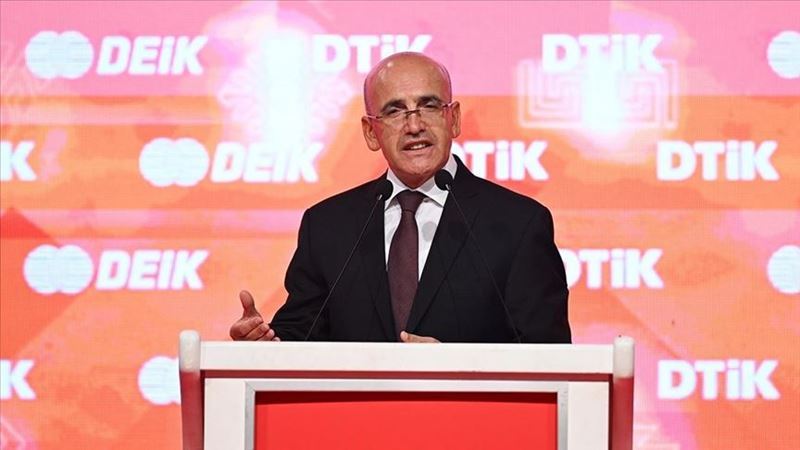

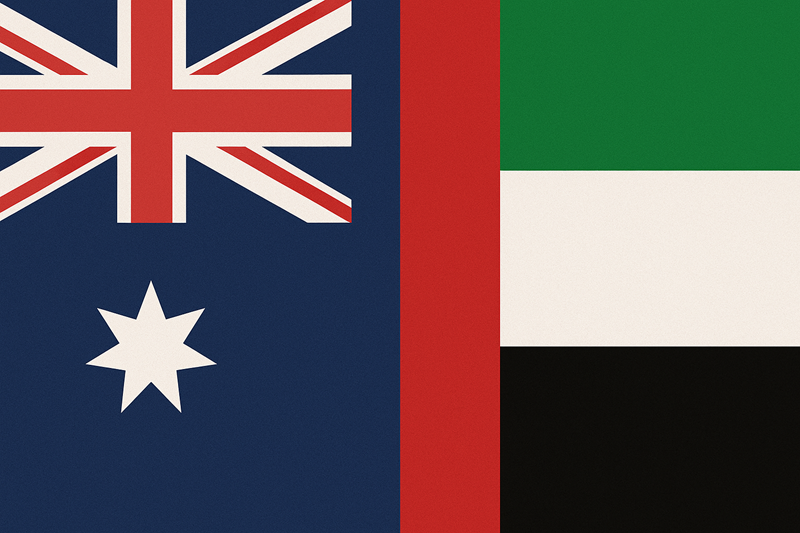
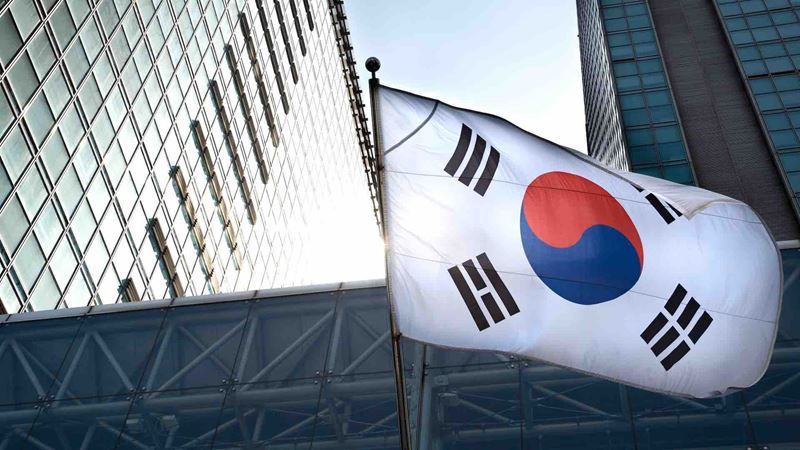
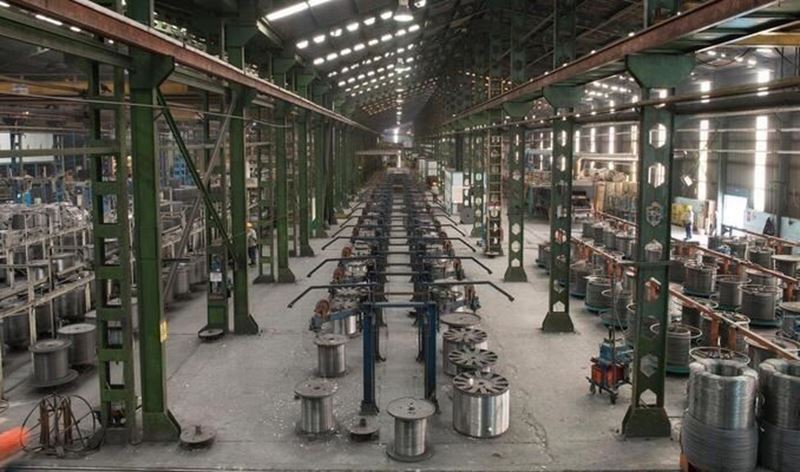
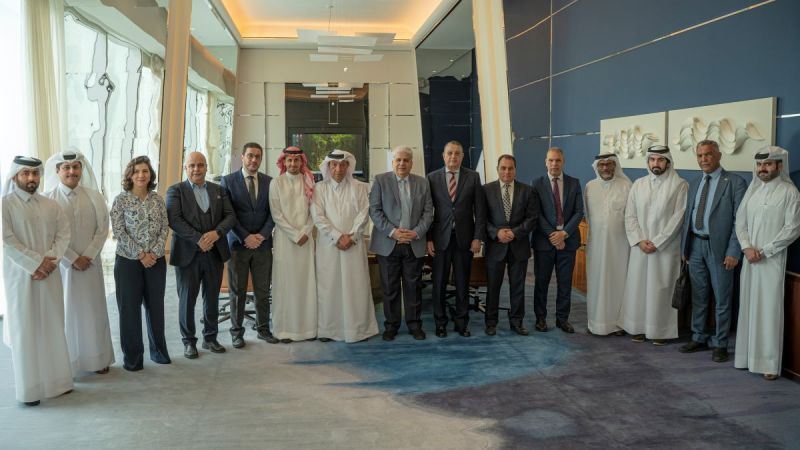
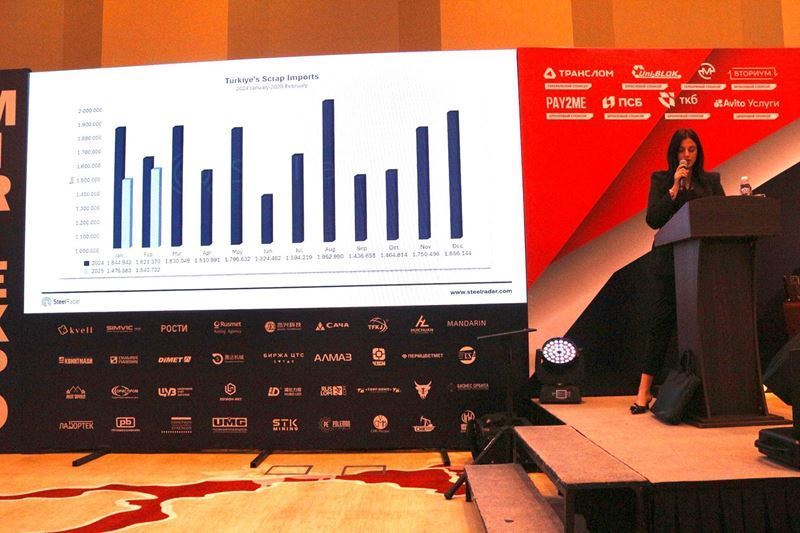


Comments
No comment yet.